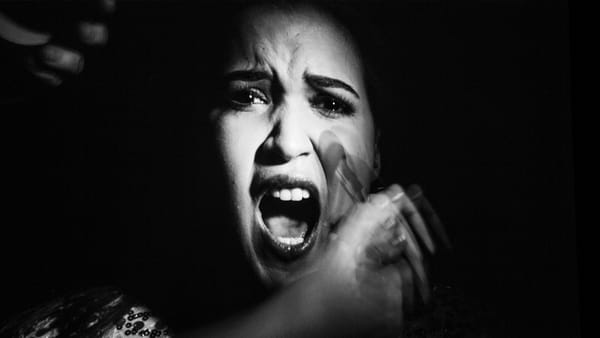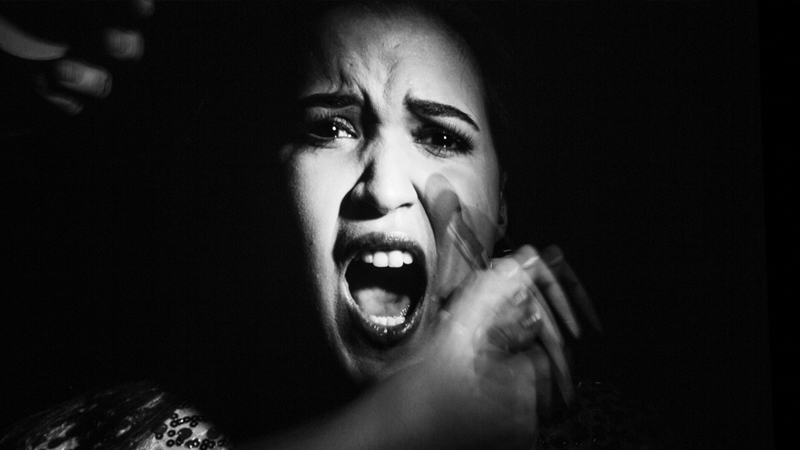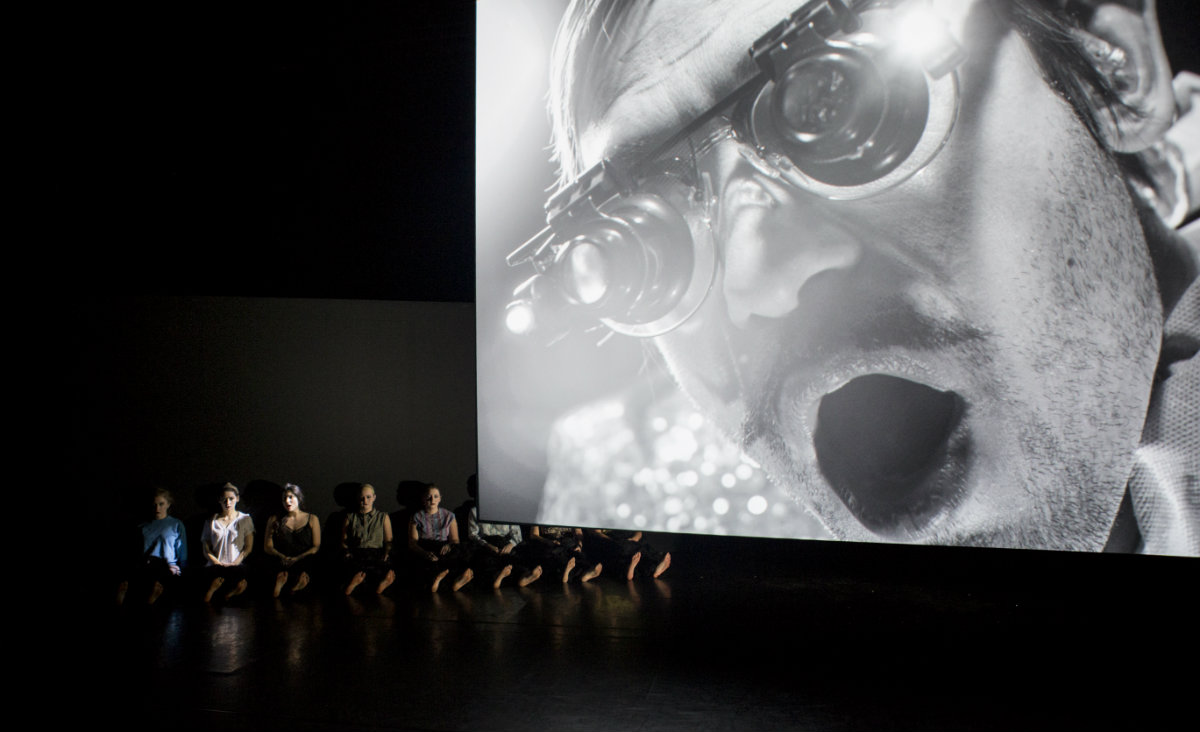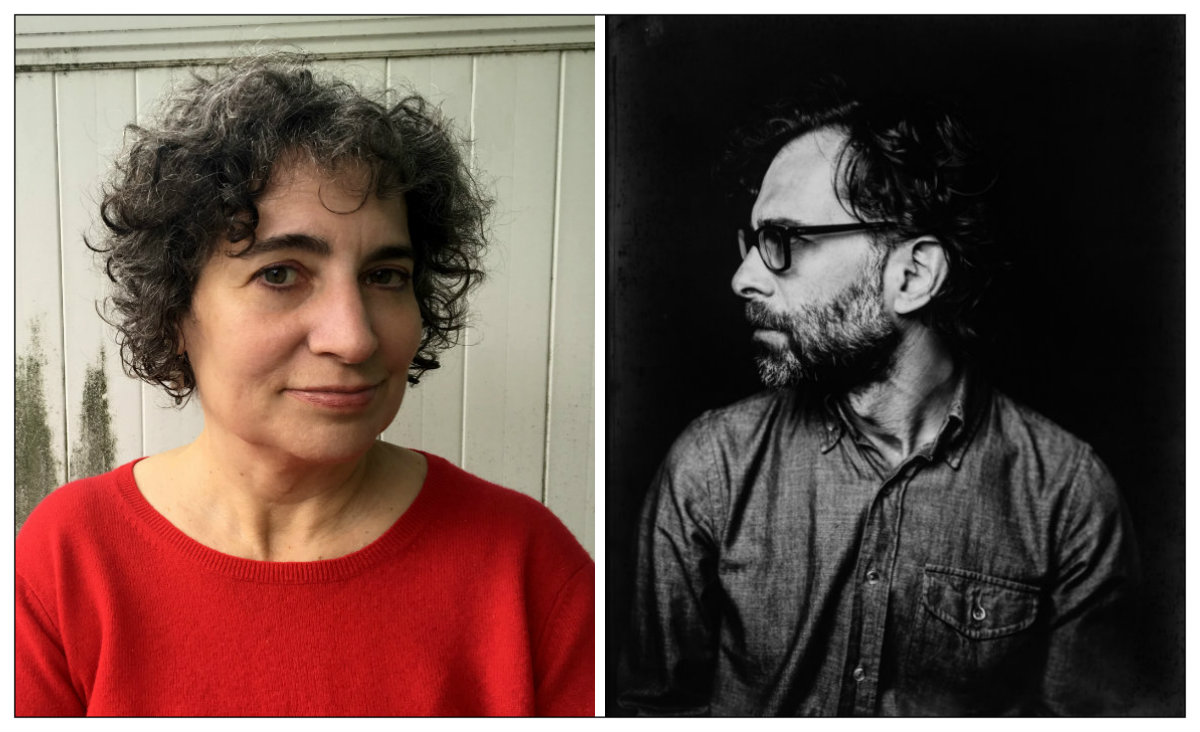"Acquanetta" Blends Camp and Character Study in multimedia at Bard's SummerScape
Director Daniel Fish returns to SummerScape in this B-movie-siren-inspired opera.

Director Daniel Fish returns to SummerScape in this B-movie-siren-inspired opera.

Mikaela Bennett as Acquanetta. Photo by Maria Baranova
Once again, a Bard SummerScape production delves into the past to find fascinating new ways to express timely themes of identity, transformation and human connection. As with 2015’s Oklahoma! – currently the Tony-award-winning toast of Broadway – and last year’s Peter Pan (“Bright as a gin fizz” —The Village Voice), the upcoming production of Acquanetta is enjoying lots of pre-festival buzz, particularly surrounding esteemed director Daniel Fish, who also helmed Oklahoma!.
“This is my fifth time working at Bard SummerScape,” Fish says. “But my first working with a traditional proscenium, which I’m excited about. [Oklahoma! was – and is – famously in the round, with chili.] And Acquanetta is much more surreal and abstract [than Oklahoma!]. It presents a series of situations combined with phenomenal, intense music. Whatever story you glean is going to be one you essentially make up on your own; it could be about identity, or it could be about film.”
Fish also directed Acquanetta’s 2018 Prototype Festival production in Brooklyn. Time Out New York hailed the production as “unmissable, sublime,” New York magazine dubbed it a “Critics’ Pick,” New York Classical Review proclaimed it one of the “Top Ten Performances of 2018,” and the New York Times gushed, “[Acquanetta] turns the story of [a] campy film’s star into a somberly ritualistic mediation on public versus private identities.”
Acquanetta is the brainchild of librettist Deborah Artman and composer and Bang on a Can co-founder Michael Gordon, and was originally conceived a decade ago and produced in Germany. To create the multimedia piece, the duo drew inspiration from the obituary of the mysterious real life Acquanetta (1921–2004) a.k.a. Mildred Davenport. Known for her exotic beauty, she headlined such 1940's horror films as Captive Wild Woman, Jungle Woman, The Sword of Monte Cristo, and Tarzan and the Leopard Woman. Though she claimed to be of Arapaho heritage, Walter Winchell christened the dark-eyed, dark-haired siren the “Venezuelan Volcano.”
“Latin women were very ‘in’, and she spoke with a fake Spanish accent,” Artman says. Acquanetta, frustrated at being typecast, gave a different version of her past in every interview, casting herself in various guises and stories. (According to Wikipedia, she was most likely of African-American descent.)
The genesis of Acquanetta is a scene from the 1943 cult classic Captive Wild Woman, in which a mad doctor conducts a doomed experiment to create a woman by transplanting a human female’s brain and glands into a gorilla.
“We decided to make the opera based on the laboratory scene and use it as a metaphor for layers of identity,” says Artman. “Acquanetta’s story is a quintessential story about how women often have to conceal their truth and hide in plain sight, reinventing themselves to fit an accepted narrative. It has even more resonance now in the current climate when the role of women in power structures is being reevaluated and scrutinized.”
According to Artman and Gordon, the first time the audience sees Acquanetta, she is wrapped in gauze, which the mad doctor slowly peels away. “There are layers of identity, layers of emotion going on in this piece,” Gordon says.
In Artman’s libretto, the characters function both as actors playing roles and as the parts they are playing, revealing inner longings as they wrestle with identity, stereotypes and typecasting.
“Deborah very cleverly looked into the background and the personal stories of the people in that scene," Gordon says. "Every one of the characters has a story to tell that’s multi-dimensional.” Prolific character actor and Hollywood legend John Carradine (father of Keith and David), who played the mad scientist, is also a character struggling with the stress of shifting identity. Another Captive Wild Woman character also portrayed in Acquanetta: the film’s director, Edward Dmytryk, whose actual interview with a movie magazine is transcribed into an aria.
About her collaborators’ contributions to the project, Artman adds: “Daniel Fish, our director, has cracked the opera open and elevated it to an electrifying opera-film-theater hybrid never before seen in the opera community. It’s immensely fun with Michael Gordon’s dance-in-your-seat music, eerie sounds and beautiful, layered voices.”
Fish is very happy to return to SummerScape. “I love working at Bard,” he says. “It’s a really supportive environment, with a great staff. It’s one of the finest places in the country to be working in theater. And Acquanetta is a thrilling piece.”


